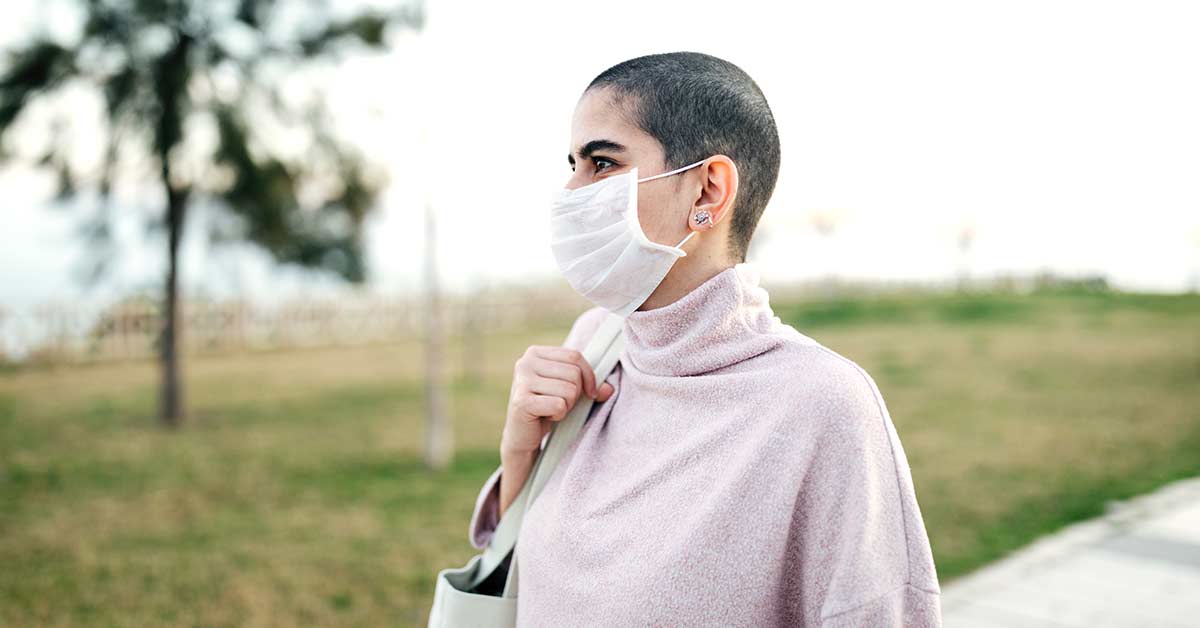
Important Questions About COVID-19 and Cancer, Answered
-
Several months into the global pandemic, there remain many unknowns about COVID-19 and how it might affect those with cancer. But, experts do have solid advice for some of the worries weighing on the minds of patients and their families.
Here are five common questions Fox Chase Cancer Center physicians were asked about COVID-19 and cancer when they appeared on 6abc Philadelphia Facebook Live.
Q: Does having cancer increase my risk for COVID-19?
A: “Cancer doesn’t make you more likely to contract COVID-19; but, depending on your diagnosis and treatment, cancer may affect how your body handles the infection,” explained Robert Uzzo, MD, MBA, FACS, Chairman and Professor of the Department of Surgery at Fox Chase. More aggressive cancers and treatments can suppress your immune system, which could make it harder to fight off the virus and increase the chances for complications.
Q: If I contract COVID-19, will cancer make my symptoms worse?
A: “A lot of it depends on the type of cancer and what type of treatment you are receiving,” explained Martin Edelman, MD, Chair of the Department of Hematology/Oncology at Fox Chase.
Because COVID-19 is a respiratory infection, it has a very high mortality rate in patients with lung cancer. Patients with hematologic malignancies, blood cancers, acute leukemia, and those undergoing stem cell or bone marrow transplants also seem to have a high risk of severe complications.
But that’s not the case across the board. The data suggests that targeted therapies and hormonal therapies, like those often used for breast cancer, don’t seem to increase complications from COVID-19, Edelman said.
Q: Should I get treated for cancer right now or is it safer to wait to begin treatment?
A: The decision to pursue or delay treatment needs to be highly individualized. “You have to take the risk of COVID-19 infection in your particular circumstance and compare it to the risk of cancer progression,” Uzzo said. This isn’t always easy and your oncologist must help you weigh your risk and benefits.
The answer has to do with your cancer diagnosis, age, and overall health. If you’re an older adult with cancer that’s slow growing and not life-threatening, holding off on treatment may make sense if you are in an area that is experiencing increases in community spread of the virus. But, if you’re younger and have an aggressive type of cancer, you shouldn’t wait to get treated, Uzzo said.
Q: Should I cancel an existing appointment with my oncologist?
A: “The simple answer is no,” Edelman said. If you’re actively undergoing treatment, it’s crucial to continue going to your scheduled appointments and receiving your treatment on time. And, you can do so safely—Fox Chase has taken extensive measures to keep our center free of COVID-19. “We have not had a single case transmitted within the institution,” Edelman said.
It’s worth keeping other types of appointments, too, because they can likely be converted to telehealth visits. “If it’s a long-term follow-up or an appointment for a treatment that we’re not going to make any decision on that day, that can be done remotely, if needed,” Edelman said.
Q: What precautions should I take to help protect a loved one undergoing treatment?
A: Follow hygiene rules to a T—and practice physical distancing as much as possible. Wash your hands regularly, wear a mask, and leave essential tasks like food shopping or pharmacy trips for your loved one.
Even though it can be hard, keep your distance from your loved one. “Make sure they know that you appreciate their support and love, but try your best not to have that close physical contact,” Uzzo said. “Unfortunately, respiratory viruses spread with close contact.”
Watch the full Facebook LIVE broadcast.
